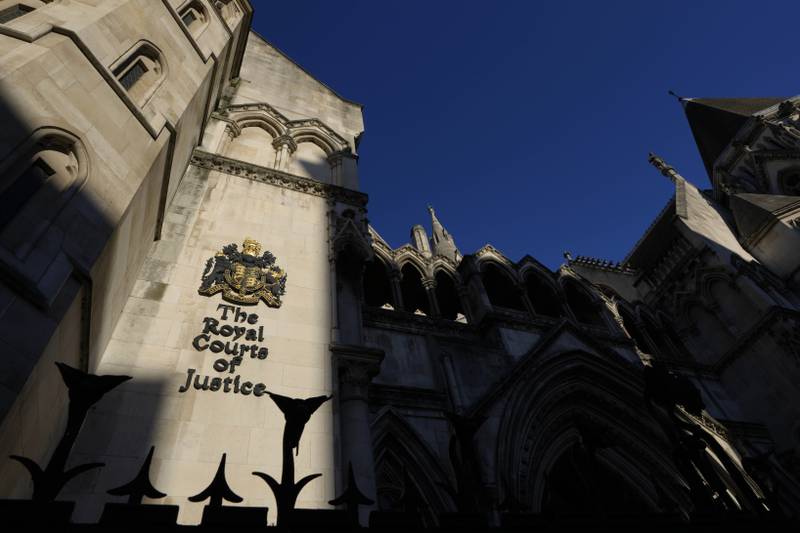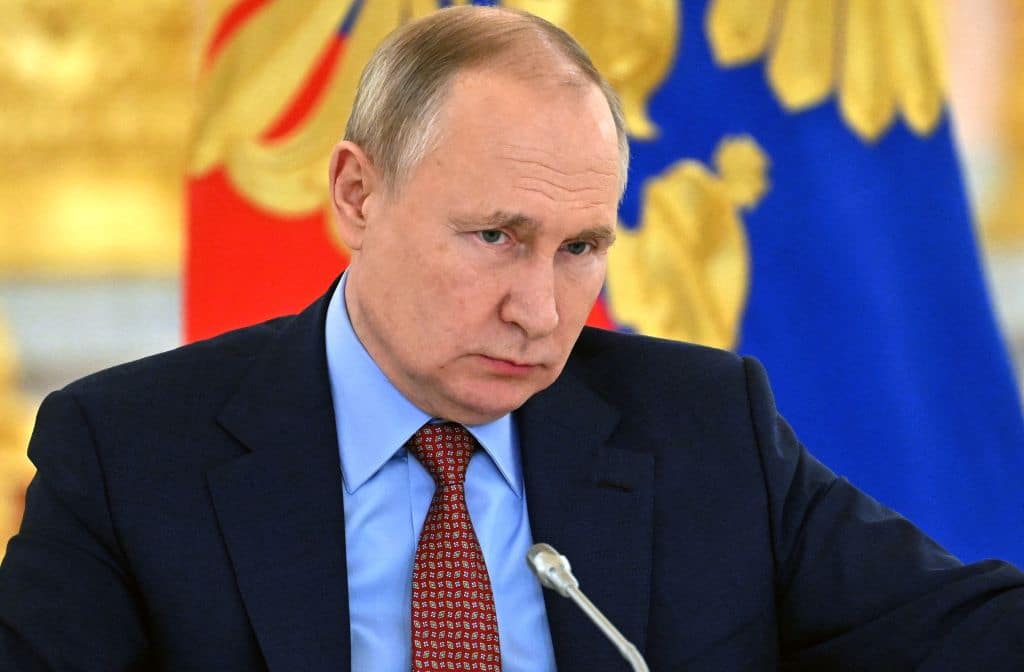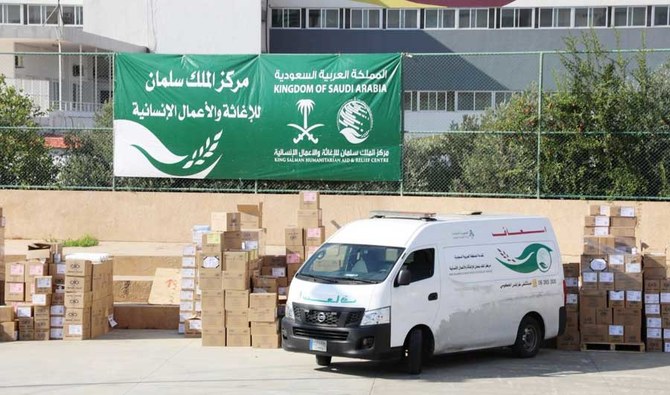by english.aawsat.com — Lebanon’s Cardinal Patriarch Mar Bechara Rai called on Wednesday for the government to agree a plan with the International …

By Paul Peachey -- thenationalnews.com -- A British-Lebanese businessman is suing two banks who refused to transfer $4.6 million out of Lebanon following the 2019 economic crisis. Vatche Manoukian, 42, repeatedly asked SGBL (Societe Generale de Banque au Liban) and Bank Audi to transfer money to a Swiss account from 2019 but the two lenders refused, citing informal capital controls imposed by the country’s central bank. Mr Manoukian is demanding the return of the $3.4m held in SGBL and the $1.2m held in Bank Audi, plus damages and interest. The banks are contesting the claims. The case comes after a French court ordered another Lebanese bank, Saradar, to pay $2.8m to one of its clients in France last year in the first known international ruling against Lebanese banks over the capital controls.
Mr Manoukian’s claim is a rare case being heard in London, which has been brought under EU consumer legislation that was in place before Brexit. The case has been fast-tracked at the High Court because of the deteriorating financial situation in Lebanon. Lebanon's financial system collapsed in 2019 after years of unsustainable financial policies, and banks imposed tight controls on accounts, including a de facto ban on withdrawals of dollar-denominated deposits and limits on withdrawals in the local currency. These controls were never formalised with legislation and have been challenged in local and international courts by savers who have sought to take out their money promptly in hard currency, rather than in the Lebanese pound, which has lost more than 90 per cent of its value in two years.

By Mark Jenkins -- catholicherald.co.uk -- In 2014 Vladimir Putin recommended three books for his regional governors to read: Justification of the Good, by Vladimir Solovyov; Philosophy of Inequality, by Nicholas Berdyaev; and Ivan Ilyin’s Our Tasks. Although each of these writers had very different visions, they were all united by a belief in “The Russian Idea:” the belief that Russia has a unique, providential, indeed messianic role to play in world affairs. The political philosophy of Ivan Ilyin (1883-1954) is known to have struck a particular chord with Vladimir Putin – to the extent that in 2005 the Russian President ordered that Ilyin’s remains be moved to the Donskoy Monastery in Moscow. During his life, Ilyin had been a fervent Russian Orthodox churchman. Ilyin saw Russia as an organic being, an extra historical, mystical unity, rather than in terms of the kind of legalistic understanding of nationhood that had emerged out of the European Enlightenment. Like Dostoevsky, Ilyin believed in the importance of Russia preserving its tradition of autocracy, as well as avoiding the nineteenth-century western fashion for constitutional government.
In 2014 Vladimir Putin recommended three books for his regional governors to read: Justification of the Good, by Vladimir Solovyov; Philosophy of Inequality, by Nicholas Berdyaev; and Ivan Ilyin’s Our Tasks. Although each of these writers had very different visions, they were all united by a belief in “The Russian Idea:” the belief that Russia has a unique, providential, indeed messianic role to play in world affairs. The political philosophy of Ivan Ilyin (1883-1954) is known to have struck a particular chord with Vladimir Putin – to the extent that in 2005 the Russian President ordered that Ilyin’s remains be moved to the Donskoy Monastery in Moscow. During his life, Ilyin had been a fervent Russian Orthodox churchman. Ilyin saw Russia as an organic being, an extra historical, mystical unity, rather than in terms of the kind of legalistic understanding of nationhood that had emerged out of the European Enlightenment. Like Dostoevsky, Ilyin believed in the importance of Russia preserving its tradition of autocracy, as well as avoiding the nineteenth-century western fashion for constitutional government.

by arabnews.com -- HEBSHI ALSHAMMARI -- RIYADH: A Lebanese woman flown on an emergency flight from Beirut to Riyadh is receiving urgent lung and breast cancer treatment following a generous intervention by Saudi Arabia’s King Salman. Sahar Ali Karim was aided by the Saudi Ministry of Health in her transfer to the world-class King Faisal Specialist Hospital and Research Center on Monday. The facility is the largest cancer treatment center in the Gulf region. It is accredited by the World Health Organization as a Collaborating Center for Cancer Prevention and Control. Saudi authorities had begun the process of transferring Karim after Saudi Arabia’s King Salman issued a directive to treat her cancer, which had led to bone metastasis. Karim’s husband thanked King Salman and Crown Prince Mohammed bin Salman on Twitter for sponsoring the treatment of his wife. He said: “A distress call from Lebanon, and a generous hand answered it from Riyadh, the capital of the Kingdom of humanity. Thank you, Custodian of the Two Holy Mosques King Salman for your generous agreement to treat my wife’s cancer. I’m asking God Almighty to make her in the balance of your good deeds.” He added in the viral tweet: “Praise be to God ... how much hope and life this approval has made in us.”
Ahmed Al-Fuhaid, an academic and member of the board of directors of the Saudi Journalists Association, said: “It is important for governments to deal with humanitarian conditions in isolation from the interactions and disagreements that occur between countries.” He added that Saudis, since ancient times, have sought to do good and provide aid to those in need, and that “people here take the initiative to extend a helping hand to meet the needs of people inside and outside the country.” Al-Fuhaid said that such aid takes many forms, including financial and in-kind donations including food, medicine and clothing, in addition to support of tools, products and services. He added that Saudi aid to needy people around the world “is clearly evident through the figures issued by international organizations,” and that the Kingdom’s generosity on a state level is “a reflection of the personality and nature of the Saudi people.”
Khazen History


Historical Feature:
Churches and Monasteries of the Khazen family

St. Anthony of Padua Church in Ballouneh
Mar Abda Church in Bakaatit Kanaan
Saint Michael Church in Bkaatouta
Saint Therese Church in Qolayaat
Saint Simeon Stylites (مار سمعان العامودي) Church In Ajaltoun
Virgin Mary Church (سيدة المعونات) in Sheilé
Assumption of Mary Church in Ballouneh
1 - The sword of the Maronite Prince
2 - LES KHAZEN CONSULS DE FRANCE
3 - LES MARONITES & LES KHAZEN
4 - LES MAAN & LES KHAZEN
5 - ORIGINE DE LA FAMILLE
Population Movements to Keserwan - The Khazens and The Maans
ما جاء عن الثورة في المقاطعة الكسروانية
ثورة أهالي كسروان على المشايخ الخوازنة وأسبابها
Origins of the "Prince of Maronite" Title
Growing diversity: the Khazin sheiks and the clergy in the first decades of the 18th century
Historical Members:
Barbar Beik El Khazen [English]
Patriach Toubia Kaiss El Khazen(Biography & Life Part1 Part2) (Arabic)
Patriach Youssef Dargham El Khazen (Cont'd)
Cheikh Bishara Jafal El Khazen
Patriarch Youssef Raji El Khazen
The Martyrs Cheikh Philippe & Cheikh Farid El Khazen
Cheikh Nawfal El Khazen (Consul De France)
Cheikh Hossun El Khazen (Consul De France)
Cheikh Abou-Nawfal El Khazen (Consul De France)
Cheikh Francis Abee Nader & his son Yousef
Cheikh Abou-Kanso El Khazen (Consul De France)
Cheikh Abou Nader El Khazen
Cheikh Chafic El Khazen
Cheikh Keserwan El Khazen
Cheikh Serhal El Khazen [English]
Cheikh Rafiq El Khazen [English]
Cheikh Hanna El Khazen
Cheikha Arzi El Khazen
Marie El Khazen